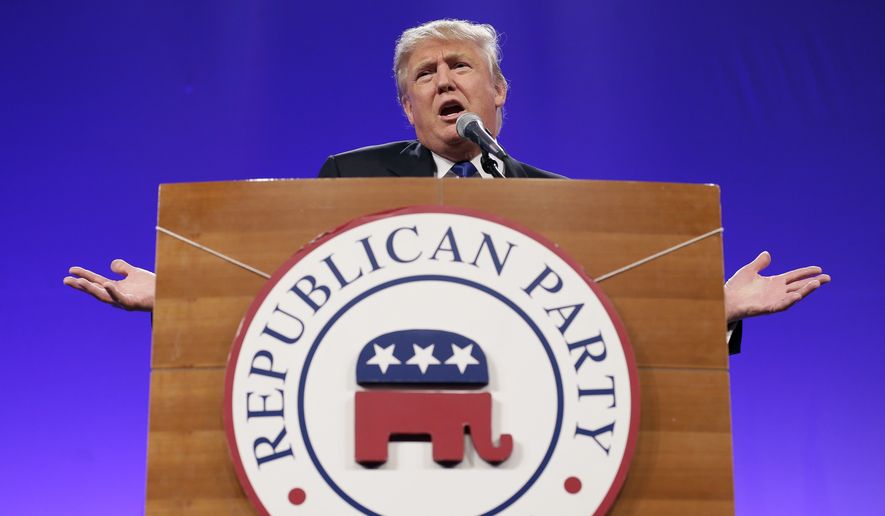The Republican National Committee is paying some personal legal bills for former president Donald Trump, spending party funds to pay a lawyer representing Trump in investigations into his financial practices in New York.
In October, the RNC made two payments totaling $121,670 to the law firm of Ronald Fischetti, a veteran defense attorney whom Trump hired in April.
According to a person with direct knowledge of the payments, the requests came earlier this summer but were voted on by the party’s executive committee only in recent weeks.
Fischetti has been representing Trump as he faces investigations by Manhattan District Attorney Cyrus Vance Jr. (D) and New York Attorney General Letitia James (D).
There has been no indication that either investigation involves Trump’s time as president or any of his political campaigns.
A person familiar with the RNC’s decision who spoke on the condition of anonymity to discuss internal conversations said the organization was willing to foot the bills because James has made comments indicating she wanted to go after Trump.
James in 2018 told supporters that she intended to investigate Trump, noting that “I will be shining a bright light into every dark corner of his real estate dealings.” J
ames has said her investigation is following the law and not guided by politics.
The RNC is not paying some of the president’s other bills, such as those for his court battles over the House Jan. 6 committee’s requests, said the person familiar with the RNC’s decision.
Trump is a wealthy businessman with dozens of properties, and he has built an independent political operation, which at last count had more than $100 million on hand.
This summer, Vance’s office indicted Trump’s longtime chief financial officer, Allen Weisselberg, and two Trump corporate entities on charges of felony tax fraud. Weisselberg and the two companies have pleaded not guilty.
More recently, investigators have sought information about instances in which Trump’s company gave vastly different valuations of the same properties to lenders and tax authorities.
Vance recently convened a new grand jury to hear evidence and potentially consider charges in the case. James — who is now a candidate for governor — has said she is also considering a lawsuit.
RNC Chairwoman Ronna McDaniel has come under pressure from some members to show more independence from Trump, but the majority of her 168 members continue to support the former president, party officials say.
The party held a fundraiser in the spring at the former president’s Mar-a-Lago estate, where Trump spoke, paying the club almost $200,000.
McDaniel has stayed in regular touch with Trump.
Her allies say that Trump remains the biggest fundraising draw for the party, and it is important to stay in his good graces.
It’s not the first time the RNC has covered Trump’s legal fees.
While he was president, it paid for lawyers to represent Trump and his eldest son, Donald Trump Jr., during investigations of his 2016 campaign and his alleged connections to Russia.
This fall, the Federal Election Commission faulted the RNC for paying for those lawyers out of an account devoted to recounts and other election-related proceedings.
The FEC stopped short of exacting penalties, saying it had yet to “provide guidance” on rules for the segregated account.
In this case, the payment to Fischetti’s firm came from a different pot of money, the RNC’s general account, according to FEC records.
Because of that, the payments to Fischetti are unlikely to run afoul of federal campaign finance law, said Brendan Fischer, an attorney with the Campaign Legal Center.
That’s because the ban on the personal use of funds from campaign committees does not apply to spending by party committees, he said.
But Craig Engle, head of the political law group at the law firm Arent Fox, said party committees have often avoided paying for personal expenses for another reason — fear that they might lose their tax-exempt status, for appearing to use nonprofit funds for their leaders’ personal benefit.
Engle said the RNC’s spending related to the Russia investigations was clearly connected to the then-president’s campaign and position in office. “It’s hard to quarrel with that,” Engle said.
But in this case, Fischer said, the idea that the investigations in New York are connected to Trump’s campaign or position in the party “seems like a real stretch.”
This article appeared in The Washington Post.
